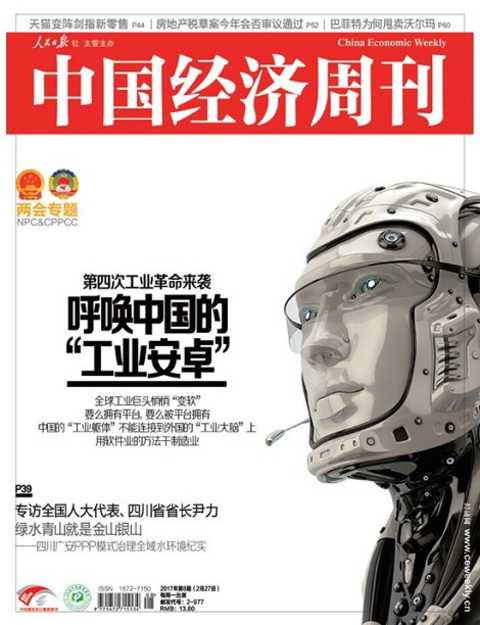
Cover of the 8th issue of China Economic Weekly in 2017
"China Economic Weekly" reporter Yao Dongqin | Beijing report
(This article was published in China Economic Weekly, Issue 8, 2017)
The trains of previous industrial revolutions have dropped a considerable number of passengers: there are still 1.3 billion people in the world, about 17% of the population have no access to electricity, and the second industrial revolution has not yet been fully realized; the third time marked by computer applications The industrial revolution has dropped more than half of the world's population, and 4 billion people still cannot access the Internet.
The fourth industrial revolution train that screams in front of you, who will be in first class, who will be left behind by the train?
Professor Schwab, founder of the World Economic Forum, wrote in the book "The Fourth Industrial Revolution: The Power of Transformation" that the fourth industrial revolution achieved virtual and physical production systems on a global scale by promoting the development of "smart factories". Flexible collaboration. "Technology and digitalization will change everything," Schwab said.
The spindle was the symbol of the first industrial revolution. It took 120 years to go out of Europe and go global. In contrast, the Internet, the hallmark of the third industrial revolution, took less than a decade to reach all corners of the world. In the fourth industrial revolution, due to the explosive emergence of breakthrough technologies such as artificial intelligence, robotics, the Internet of Things, and CPS (cyber physics system), the speed of development and the breadth of influence far exceeded the previous revolutions. For the opportunities and challenges of the fourth industrial revolution, a positive and consistent understanding is formed with strategic urgency.
The manufacturing powers have taken the lead. From Germany's "Industrial 4.0 Strategy", the US "Industrial Internet" to "Made in China 2025", "Intelligent Manufacturing" became the main theme of the fourth industrial revolution. It is important to point out that countries have focused on "informatization of industrial technology."
Germany's "Industry 4.0" pointed out that "Industry 4.0" is a revolutionary transformation of modern information and software technology and traditional industrial production interaction. "Software has become the primary driving force for innovation in the industrial sector, its importance has risen, and its development momentum is rapid," and will become the next new industry.
The US "2016-2045 Emerging Technology Trends Report" clearly states that "software defines everything." For companies in all industries, "having powerful software is an important factor in achieving competitive initiative."
In China, in May 2016, the “Guiding Opinions of the State Council on Deepening the Integration of Manufacturing and Internet Development†was released, raising the strategic significance of software to an unprecedented level, namely “strengthening software support and defining the fundamental role of manufacturingâ€. .
Minister of Industry and Information Technology Miao Wei said at the Industrial Internet Summit in 2017 on February 21 that the Ministry of Industry and Information Technology is studying the development of the industrial Internet and will further form the top-level design of China's industrial Internet development.
"China's manufacturing transformation and upgrading, 'Made in China 2025', promoting 'Internet +', and even promoting supply-side structural reforms and other policies, reflects the consensus of the industry, software is a bull nose, is the engine, it is a new generation of information The core and soul of technology.†Xie Shaofeng, Director of the Information and Software Services Department of the Ministry of Industry and Information Technology, told China Economic Weekly.
In the opinion of industry experts, "industrial technology software" is an important weight for China to seize the opportunity in the fourth industrial revolution, and even overtake the curve. Bai Jinfu, former deputy director of the Economic Affairs Bureau of the Central Policy Research Office and president of the China Economic Research Institute, pointed out to China Economic Weekly that both Internet and intelligence are defined by software, and industrial technology software drives industrial change. .
More importantly, on the basis of industrial technology software, global industrial giants have begun to compete for industrial platforms to create "Android in the industrial field." If Android and iOS turn mobile phones into smart phones and bring about a golden decade of mobile Internet development, then from the manufacturing to the smart manufacturing, the Android platform in the industrial field is also needed.
Li Yizhang, chairman of Beijing Suowei System Technology Co., Ltd. (hereinafter referred to as “Soowei Companyâ€), who has been deeply involved in the industrial software and industrial technology software field for 18 years, bluntly told China Economic Weekly that the international industrial competition situation is left to China’s gold. The window period is not too long. "If the next two to three years, China's own industrial platform and standards cannot be established as soon as possible, Chinese companies use the German and American platforms, and they will not connect China's 'industrial body' to other people's 'industrial brains', core data. Technology, knowledge are deposited on other people's platforms. Once this day, our lost opportunities may not be recoverable in 30 years."
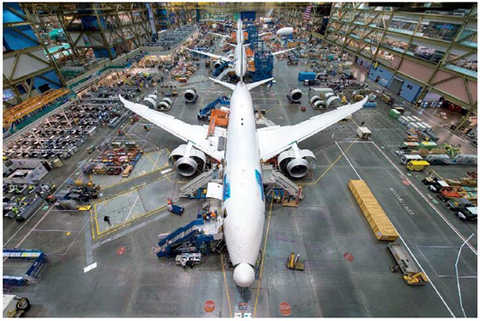
Global industrial giants quietly "soften"
Software is becoming the most important part of smart manufacturing, the global industrial giant crazy merger software company
Who is the world's largest software company? Is it Microsoft? In fact, if you look at the number of lines of code, the military industry Lockheed Martin has already surpassed Microsoft to become the world's largest software company. As the world's largest defense company, Lockheed Martin is known as the F22 and F35 fighters. However, about half of the company's 2007 revenue of $39.62 billion came from software and related IT industries. "Lockheed Martin has 120,000 people, of which 20,000 are engaged in software-related industries, which is equivalent to 20,000 people who have made software to earn 100,000 people to make money from airplanes." Ning Zhenbo, chief consultant of AVIC Information Technology Center told China Economic Weekly.
In 2013, AVIC Group took the lead in the Sysware engineering middleware and knowledge automation technology of the company, and took the lead in fully launching the software technology construction of the aviation industry.
As a leader in the aviation industry, Boeing is the most frequently cited case in the industry when talking about "industry technology software." The Boeing 787 development process uses more than 8,000 kinds of software, of which less than 1,000 are commercial software, and the remaining 7,000 are proprietary software that Boeing has built into decades of engineering, knowledge and experience. Boeing's core competitiveness has been protected and Boeing's leading position in aircraft manufacturing has been established.
"With the 7000 kinds of software, no one left will affect Boeing's aircraft development level; instead of the 7,000 kinds of software, even if COMAC invited Boeing's chief designer, it could not create a Boeing aircraft." For the company's chairman Li Yizhang told reporters that foreign industrial giants are doing a lot of software development work, putting people's skills, skills, and experience in the software, replacing the human ability through software. This situation is very common among foreign industrial giants. In 2015, the industrial giant GE proposed to become one of the world's largest software companies in five years. Heavy-duty industrial enterprises such as GE are developing into light assets and are becoming "software companies."
"One day, it is possible to put these software in a suitcase, and take advantage of the software to somewhere in the world, you can control an advanced factory and manufacture it instantly." Li Yizhang said.
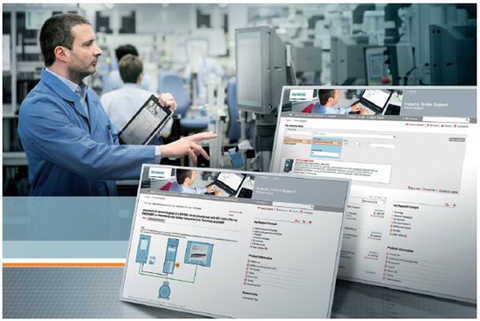
Siemens Industrial Software Platform
Aeroengine design is completed in one day - industrial technology software brings wings to industry
In the new round of global industrialization competition, industrial software has been repositioned, and the auxiliary tools developed from the informatization of manufacturing industry have been promoted as the weapon to promote the transformation and upgrading of industrial intelligence. Of course, the "software" mentioned here is not a single-function tool software, such as CAD, CAE, PDM, etc., but a series of intelligent software that integrates industrial knowledge and technology.
In traditional manufacturing, industrial software mainly refers to software such as design, simulation, process, test, management, such as CAD, CAE, CAM, CAPP and industrial control software. However, as far as the development of industrial software is concerned, whether it is Germany's "Industry 4.0" or the US "Industrial Internet", it is inseparable from industrial knowledge and technology. By softwareizing these industrial knowledge and technology, it is possible to realize intelligentization. R&D, design, manufacturing and operation management.
For example, in the factory, if you want to inspect a machine, you must go to its location to observe. When the knowledge and technology of equipment operation management are softwareized, we can remotely monitor the machine and analyze big data. A bridge for communication between machines, machines and people.
The industrialization of industrial technology can make industrial technology better protected, run faster, and be applied on a larger scale, thereby magnifying the effects of industrial technology ten times, allowing engineers and technicians to do more innovative. jobs.
Li Yizhang gave an example. "We have made the layout design and strength analysis of the civil aircraft for China Commercial Aircraft Corporation. It only takes one week. It takes four months to do it in the traditional way."
The National Aeronautics and Space Administration (NASA), together with GE, Pratt & Whitney and other companies, after 20 years of development of NPSS software, embedded a large number of engine design processes, methods and parameters, one day to complete a round of aviation engine design, to ensure that the United States Absolute advantage in engine technology. The digital transformation that GE is pushing is to software and integrate GE's industrial technology with its industrial Internet platform Predix to connect and control every machine connected to the world.
It is not difficult to understand why Boeing, GE and other century-old industrial enterprises have laid out large-scale software. "These industrial enterprises are not to become IT companies like Microsoft, not to provide software to others, but to accumulate industrial knowledge accumulated over a century. Industrial technology is transformed into software, which inserts the wings of software for its own industrial manufacturing," Li Yizhang said.
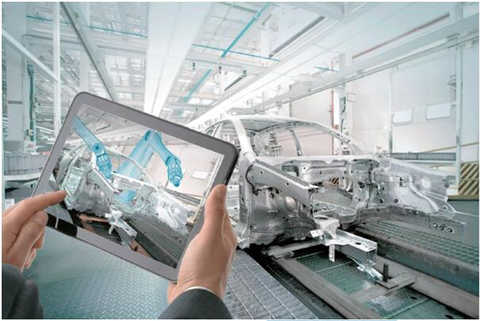
Siemens Industrial Software Platform
Frequent acquisition of software companies such as GE and Siemens
On February 8, Schneider Electric, one of the world's top 500 companies, announced the acquisition of 3D real-time technology software company MWPowerlabs.rl. Schneider said the acquisition will bring advanced virtual reality and augmented reality technology to its industrial software portfolio.
In fact, not only Schneider Electric, in recent years, GE, Siemens and other industrial giants have stepped up their acquisition of software companies to strengthen their core competitiveness in the era of intelligent manufacturing.
In August 2016, GE acquired Shipxpress, a well-known supply chain software developer. In November 2016, GE acquired three other software companies, namely cloud service company ServiceMax, two artificial intelligence startups, Bit Stew Systems and Wise.io. GE's goal is to expand its industrial Internet platform, Predix. GE Global CEO Jeff Immelt once said, "We hope that the accumulation of more data will make Predix gradually become the industry standard." GE hopes to achieve $15 billion in software sales by 2020, ranking among the top 10 software companies in the world.
In Germany, Siemens has dominated the development of industrial software platforms. In 2007, Siemens spent $3.5 billion to buy UGS, which has an annual profit of only $110 million. However, this acquisition has earned it three important chips: 3D design software UG-NX, product lifecycle management software Teamcenter, digital factory assembly system Tecnomatix.
In 2008, Siemens acquired Innotec in Germany, representing the plant layout planning of the virtual plant and the operational simulation of the actual plant.
Since 2013, Siemens has attempted to implement human-computer interaction in virtual design industrial software using virtual reality (VR). It has acquired LMS, VRcontext and Tesis software.
At the end of 2014, Siemens successfully acquired Camstar, which provided it with powerful analytical capabilities for on-site data.
In April 2016, after GE launched its industrial Internet platform Predix, Siemens also launched an industrial platform called MindSphere.
In November 2016, Siemens announced that it will acquire Mentor Graphics, one of the world's three largest EDA (Electronic Design Automation) companies, for a total price of US$4.5 billion to expand its existing industrial software portfolio and enhance Siemens' digitalization. Manufacturing capacity.
An insider at Siemens said that it has acquired a number of more competitive software companies and strengthened its core competitiveness in Industry 4.0. Siemens' latest investment is to work in this direction.
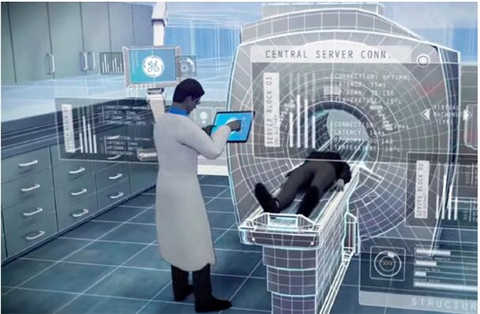
GE Industrial Medical Internet Platform
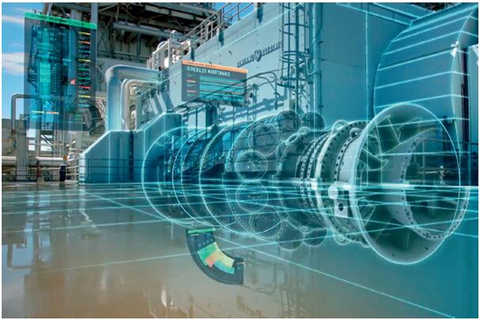
GE Industrial Medical Internet Platform
The era of "software defines everything" comes
"Boeing, GE and other traditional manufacturing companies are all developing towards software. In fact, according to the thinking of software, they carry out enterprise transformation and transformation, and promote product upgrading and technological progress." Xie Shaofeng, Director of Information and Software Services Department, Ministry of Industry and Information Technology Say, SDX (SoftwareDefined X), the concept of "software-defined everything" has been deeply rooted in the industry. For a simple example, such as a mobile phone, the previous mobile phone is a phone; plus the video app is a TV; plus the navigation software is the navigator. What is the app and what APP is, the era of "software defines everything" has arrived.
Xie Shaofeng said that software's role in empowering (adding functionality), assigning (increasing value), and adding intelligence (increasing intelligence) is irreplaceable. Take the automobile as an example. Now the value and function of a car are mainly from software, and the level of intelligence depends on the software.
It is estimated that in the 15 years from 2010, the share of software in the automotive industry will increase from 15% in 2010 to 30%.
Alto Brockman, an expert in the field of advanced manufacturing technology in Germany, wrote in the book "Intelligent Manufacturing: Subversion and Reconstruction of Future Industrial Models and Business Formats", "The success of a company is not based on hardware such as machinery and tools, but Based on its software, "in this technical field, the company will lose its competitiveness."
In Bai Jinfu's view, software is not only a "product development basis", but also has considerable market value. Experts estimate that the current market share of pure industrial software has reached hundreds of billions of euros, and the index will grow at an annual rate of 8%.
As China's action plan for implementing the strategy of manufacturing a strong country, "Made in China 2025" proposes to accelerate the promotion of the integration and development of a new generation of information technology and manufacturing technology, and to focus on the smart manufacturing as the main direction of the integration of the two technologies (Editor's Note: refers to industrialization and informationization). . Break through the core technologies of high-end industrial software such as intelligent design and simulation and its tools, manufacturing object and service, industrial big data processing, develop independent and controllable high-end industrial platform software and application software in key areas, and establish and improve industrial software integration standards and safety evaluation. The system promotes the systematic development and industrialization of independent industrial software.
The industry believes that it is important for Chinese manufacturing companies to smoothly realize intelligent transformation and realize the independent independence of industrial software based on "embedded software" deployed in all aspects of manufacturing.
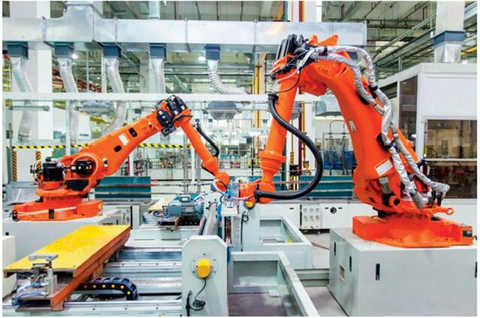
Haier Jiaozhou Interconnect Factory
Either have a platform or be owned by the platform
Foreign industrial software giants conceal what
"Industry 4.0" can be regarded as the track built by Germany. The "Industrial Internet" is the track of the United States. If China wants to catch up with Germany and the United States in the fourth industrial revolution, what path should it choose?
At the moment, Chinese manufacturing companies are keen to go to Germany to investigate smart manufacturing. In Li Yizhang's view, Germany “missed†very important information when promoting its “Industry 4.0†strategy.
“Industry 4.0, proposed by Germany, believes that industrial software and cyber physical systems (CPS) are the core of intelligent manufacturing. However, even if a complete smart factory is built through industrial software and CPS, if there is no industrial technology to drive these tools, The so-called smart factory is just a beautiful 'body', unable to operate efficiently and intelligently. It is like replacing the paper and pen with a computer and Word. If there is no corresponding knowledge reserve and writing skills, we still can't write a good article. Li Yizhang said that industrial software and CPS tools can be standardized, commercialized, and can be spread all over the world with the "Industry 4.0" number, but industrial technology is the artisan skill behind the tool, and is the "product formula" on the production line. It is impossible to publicize and export on a large scale.
German and American industrial software accelerates penetration into China
With the promotion of industrial software, smart factories, industrial Internet and industrial big data by countries such as Germany and the United States, the software and equipment of Siemens, SAP, Dassault, GE, PTC and other companies have also quickly entered China's military equipment, civil manufacturing, etc. In various industries, accelerate the occupation and penetration of Chinese manufacturing enterprises, especially high-end manufacturing industrial software platforms.
Li Yizhang told reporters that Haier's latest Jiaozhou interconnection factory, for example, has realized full value chain integration and automated production. Users can customize products and even order production, demonstrating the shape of a new generation of smart factories. But the factory's back-end core system, one from Siemens, one from SAP, and one from GE. Since engineering technology and engineering data are locked in Siemens, SAP, and GE systems, subsequent technological improvements must rely on these foreign companies for secondary development. Haier's core technologies and data are actually controlled by these foreign companies.
Not only does the civilian industry have such a dilemma, but the person in charge of the information technology department of a military industrial enterprise also told reporters that “the former military industry, now engaged in information technology, has long been led by foreign manufacturers, our knowledge has long been solidified in their software. The transition is very difficult."
I worked in a foreign company that produces industrial software for 8 years. I found that foreign companies can sell software to China and even use industrial platforms for Chinese companies. However, industrial knowledge, methods, and engineering databases are never sold. Li Yizhang decided to establish the initial motivation for the company.
"Chinese companies have not paid attention to the construction of independent industrial technology software systems in the past. Enterprises even include some governments. They may think that advanced software and equipment can be bought back to achieve advanced manufacturing, but this is often not the case." Li Yizhang told reporters, such as Chengdu An aviation company bought software for hypersonic pneumatic calculation abroad. "This software was sensitive at the time and sold very expensive. However, the database (engineering knowledge base) did not give this enterprise to Chengdu. The company used that software at all. I heard that it is useless now."
China has its own industrial platform to have an equal dialogue with Germany and the United States.
What worries the industry is that industrial software giants such as Siemens and GE have expanded into a full industrial chain through continuous mergers and acquisitions, and have established a closed ecosystem. These companies are pushing the platform strategy of industrial software and using their monopoly advantages in basic software and equipment to promote their industrial software platform to China.
In 2015, GE announced the opening of its industrial Internet platform, Predix, to all industrial companies and software developers. The platform's core functions include security monitoring, industrial data management, industrial data analysis, cloud technology applications, etc. It is a completely open system.
GE developers said: "If you are a non-professional, you can think of the Predix platform as Google's Android system or Apple's iOS system, but it is not installed on the phone, but hidden behind the data center, connected to Big data stored in the form of 'data lakes'. Like the Android and iOS systems, Predix is ​​like a well-decorated room with a full suite of software services to help people quickly develop software applications for industrial environments.
Li Yizhang analyzed that with the rise of the new round of industrial revolution, the strategy of developed countries has shifted from simple control technology to controlling the global industrial ecosystem. “In the past few years, companies like Siemens, GE, and IBM have opened their platforms to the world. They want global companies to use their platforms to conduct business. What are the purposes of these industrial giants to open platforms? In fact, they want to build them. Industrial ecosystem."
“This is the commanding height of the smart manufacturing strategy and the battleground for corporate competition. There is a very vivid image, either with a platform or owned by the platform. For Chinese companies, it is owned by Siemens and GE platforms, or is it built in China. Our own platform? We believe that China must build an independent industrial software platform." Li Yizhang believes that only with its own industrial software platform can it carry China's own industrial knowledge and technology system, and at the same time it has equal rights with Germany and the United States. The right to dialogue.
On the other hand, if we further connect factories and products to the industrial software platform of foreign companies, it means that our “industrial bodies†are connected to their “industrial brainsâ€, and industrial technology and industrial data will be deposited on others' platforms. In the end, their "industrial brain" will become more and more intelligent, and our manufacturing industry will become more and more hollow.
China Telecom has docked GE platform
"At present, in the military industry, Dassault has penetrated into the aircraft, ship, and electronics industries. Siemens is gradually controlling the engine, aerospace, weapons, and nuclear industry, which seriously threatens the safety of China's defense industry." Authorities in the industry warned.
Gao Xinmin, vice chairman of the China Internet Association, told China Economic Weekly that it is very important to build China's independent industrial software platform, and relevant departments must speed up in this regard. He noticed that China Telecom, Weichai and other companies have already connected to GE's Predix platform. Among them, in July 2015, GE and China Telecom Group announced cooperation, GE Industrial Internet big data software platform Predix and China Telecom's telecom infrastructure and value-added services docked to form an industrial Internet overall solution to promote industrial Internet in aviation, medical, Applications in energy, industrial manufacturing and other related industries.
In addition, Chinese companies and institutions such as China Telecom, Haier, Huawei, and the Institute of Automation, Chinese Academy of Sciences have joined the Global Industrial Internet Alliance (IIC) promoted by GE.
China Economic Weekly-Economic Network copyright works must be authorized and dated when reprinted, and offenders will be held liable.
China’s “industrial body†cannot be connected to foreign “industrial brainsâ€
How does China build its own "Industrial Android"
In September 2016, at the 18th China Association for Science and Technology Annual Meeting, Huai Jinpeng, then deputy secretary of the Ministry of Industry and Information Technology and now deputy secretary of the Tianjin Municipal Committee, said that China is both a big Internet country and a big manufacturing country. This is us and the world. Faced with an important basis for the same competitive starting line.
He believes that the softwareization of industrial technology is the only way for China's manufacturing industry to become a strong country. The realization of industrial Internet and industrial cloud is an important foundation for us to build a platform to achieve global integration and promote industrial development.
"Our national software industry foundation is relatively thin. In the past, we always said 'follow-up', but we always have to look for a chance to overtake the corner. Traditional system software, tool software, we have no chance, but in the platform application field Under the current situation, we maintain the same starting line with foreign countries. This field provides us with an opportunity to overtake the corner.†Xie Shaofeng, Director of the Information and Software Services Department of the Ministry of Industry and Information Technology, told China Economic Weekly.
The industry professionals interviewed by the reporter almost expressed a common concern: if China does not build its own industrial platform as soon as possible, domestic manufacturing companies will inevitably choose to join the industrial platform provided by foreign industrial giants free of charge. This means that China's "industrial body" is connected to the "industrial brain" of foreign countries.
China's biggest advantage in building an industrial platform: manufacturing countries, with large amounts of data
In August 2013, AVIC decided to adopt Sysware's engineering middleware and knowledge automation technology in the “unified IT architecture†group strategy. As a unified framework for integrated research and development of AVIC, it fully launched the digital integrated development of aviation products. Platform construction.
"This platform is an important platform to support our 'Dayun' rapid delivery," said Ning Zhenbo, Principal Consultant, AVIC Information Technology Center. “Dayun†refers to China’s 200-ton air force military aircraft. From the establishment, development, delivery, and installation, “Dayun†has created a new record for the development and delivery of similar aircraft in the world after 9 years. The delivery of "Great Universiade" marks China's entry into the club of large aircraft. Prior to this, China's aviation industry system was a "small aircraft" system. The fighters and transport aircraft manufactured were all dozens of tons, the largest was 60, 70 tons, and suddenly it was to develop 200 tons, and the existing research and development experience and The manufacturing system is not matched. On the other hand, usually a new model needs to be launched, and it takes more than 10 years to conduct key technology pre-research before it can be established. The "Great Universiade" is urgently needed by the state, and there is not enough time for pre-research. In the first three years of the project, the state invested heavily in the development of key technologies, which laid the foundation for the later "Great Universiade."
Ning Zhenbo believes that in building an industrial Internet software platform, "we have caught up with the once-in-a-lifetime opportunity and must design the architecture in the top-level design. Some people may say that our top-level design is very different. In fact, not only are we wide, GE There is also a huge gap between Siemens and the industrial bus (a collection of common signal lines that communicate information between modules or devices, and communicate with each other). There are more than 120 in the world, and there is no standard. We are a little late, but The international advanced gap is not big."
In Ning Zhenbo's view, China's manufacturing industry has the largest volume in the world, with huge industrial data, including application data, customer data, operation and maintenance data, etc. This is the biggest advantage of our construction of industrial platforms. "The large amount of data is too important. Take Huawei as an example: 20 million people in a country in Europe, and 20 million in Huawei in Zhejiang. It has been running for several years. It has mature market verification and can be used immediately in European countries. The operators in the United States and Europe have a maximum of 2 million users. To be used in the market of 20 million users, they must undergo a lot of testing."
Li Yizhang also believes that China has great advantages in this regard. China's industrial system is very complete and the market is very large. There are about 30,000 manufacturing enterprises above designated size in China, and the top 500 manufacturing enterprises involve 21 industrial categories. "If we can build China's own industrial knowledge and technology system, and build it on its own platform, form China's standard norms, which in turn allows others to recognize our platform and support our platform to realize the industrial technology software system. Self-controllable."

"Dayun" military aircraft
Attacking China's own industrial platform: Concentrating strength and providing institutional guaranteesIn fact, there are already many leading manufacturing companies in China that are exploring and practicing industrial platforms. Chen Lucheng, vice president of Haier Group, told China Economic Weekly that after implementing the mass customization transformation, Haier Connected Factory hopes to contribute this model and make it a platform to use the most concentrated resources and the least cost. Class companies achieve transformation.
"We have been working with the company for a long time. Now we have some initial results. There are more than 10 value-added services. Now we have begun to export. Many companies in Ningbo and Qingdao have already started trials." Chen Lucheng vs. China Economic Weekly said that while the company is trialing, the platform is also being iterated, which in turn promotes the exploration of Haier's internal interconnected factory model. "To promote internal and external cooperation, and strive to build this platform into a Chinese version of the industrial Internet platform. Haier has this pursuit and has this feeling. From a global perspective, we also want to seize the new opportunity of intelligent manufacturing in the world. Have the right to speak and be able to occupy this commanding height."
It is not just Haier that has the pursuit and feelings. Qiu Yanmin, deputy general manager of the Development Planning Department of China Ordnance Industry Corporation, also told China Economic Weekly, "We have a dream to build a third-party industrial collaborative manufacturing platform." "We deeply feel that for many years, the military industry has hidden A large number of cutting-edge technologies. We hope to release them and make some contributions to the country's economic and social development. We also hope that civilian high-tech can be transformed into military, and we have interactive needs."
"If we don't engage in the platform ourselves, we will definitely enter other people's platforms in the future, just like if we don't enter Taobao, we will definitely enter Amazon. If Chinese industry does not study this issue again, it will not seek to catch up, in the future competition, the market advantage. There is no more." Qiu Yanmin said.
How does China build its own "Industrial Android"? In Zhou Min, general manager of CSIC Information Technology Co., Ltd., it is very important to concentrate on tackling strength. "We must construct a kind of socialized and cooperative ecology from the concept. All military industry and military enterprises, each investing and fighting each other, the waste is actually huge. From the national level, future investment should focus on sharing assets. ."
Li Yizhang also believes that the industrialization of industrial technology, the government should take the lead in solving some of the common things. "For example, whether it is aviation, aerospace or weapons, the shipbuilding industry, there are some common core knowledge and software requirements for core technologies, which can be used by all walks of life."
Standardization is another important aspect highlighted by industry experts. "We engage in equipment to promote the three-way, serialization, generalization, and combination. The basis of the three-way is standardization. The same is true for industrial technology software. Standardization is very important, including language, interfaces, etc. It can't be used in another place." Liu Yongcai, a famous expert in flying missile technology and academician of the Chinese Academy of Engineering, said.
Xu Jianping, deputy director of the Department of Economic and National Defense Coordination Development of the National Development and Reform Commission, believes that it is necessary to provide institutional guarantees for the construction of China's "Industrial Android." Enhance the supply capacity of core software development, highlight reforms, and eliminate a series of institutional and institutional problems, structural contradictions, and policy issues that constrain core software development.
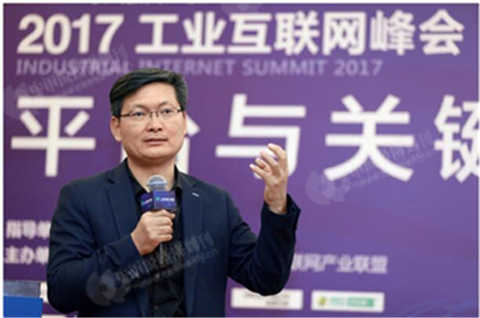
On February 20th, Li Yizhang, Chairman of the company, attended the “2017 Industrial Internet Summit†organized by the Ministry of Industry and Information Technology and gave a keynote speech. Photograph by Xiao Wei, Chief Photojournalist of China Economic Weekly Vision Center
"Developing manufacturing with the software industry"
——Interview with Li Yizhang, Chairman of Beijing Suowei System Technology Co., Ltd.
"China Economic Weekly" reporter Yao Dongqin | Beijing report
In the field of industrial technology software for 10 years, Beijing Suowei System Technology Co., Ltd. (hereinafter referred to as "Suowei") has been more famous than its own customers.
As the company's C919 layout and strength analysis for China Commercial Aircraft Corporation, it will take time from the original 4 months to a week; with Yuchai, it can take two or three weeks to make it in one or two days. The diesel engine design scheme also has application cases in aircraft, helicopters, missiles, tanks, vehicles, ships, aircraft carriers, nuclear submarines and other fields. Due to the confidentiality of the military industry, it cannot be disclosed.
On February 21st, at the 2017 Industrial Internet Summit, Haier COSMO platform officially released and provided social services to the outside world. This is China's first and largest independent industrial Internet platform for independent research and development and independent innovation. The platform is also built in cooperation with Suo.
Recently, Li Yizhang, chairman of the company, said in an interview with China Economic Weekly that industrial software software can not only stand in the software industry to see problems, but is currently the golden window for China to promote the industrialization of industrial technology. The important path to achieve overtaking in corners in the fourth industrial revolution.
The global industrial APP market will exceed US$225 billion in 2020, while the China Industrial APP market is still almost blank.
China Economic Weekly: Industrial technology software is seen as an important path for China to deal with the fourth industrial revolution. In the actual industrial enterprise production, where is the necessity of industrial technology software?
Li Yizhang: We know that the core of Industry 3.0 is to use information technology and digital technology to help products improve efficiency from research and development, design, process to manufacturing. Although these new tools have made great progress, the tools are advanced and require people to operate and use them. This has led to some problems now: First, many companies have bought advanced software and equipment, but they can't be used, and they are not good. Second, these technical tools require a lot of manual operations, which makes the phenomenon of “80% labor and 20% creation†of engineers and technicians is very common. Engineering and technical personnel are largely more like manual workers. The work intensity is very large. Smart people still have to do low-level things. If you want to innovate, there is still a lot of work to do. Third, due to the long-term neglect of software technology construction of industrial technology, many core technologies and intellectual property rights generated in the process of industrialization cannot be continuously accumulated, effectively protected and fully utilized. These core technologies and knowledge experiences are scattered in various enterprises, locked in the minds of technicians, unable to accumulate, integrate and reuse, and continue to be dissipated and lost as people flow.
The core of industrial technology software is to make the methods, knowledge and technology in the human head explicit, modular, and modeled to form industrial APP to operate those new tools. In the future, industrial intelligence still needs people to participate, machines do transactional and executive work, and people make advanced intellectual work such as decision-making and analysis.
GE made a prediction early last year that by 2020 the global industrial APP market will exceed $225 billion.这个规模相当于å†é€ 一个全çƒæ•°æŽ§æœºåºŠå¸‚场,目å‰å…¨çƒæ•°æŽ§æœºåºŠå¸‚场大概是2300多亿美元。而工业APP市场在ä¸å›½å‡ 乎是一片空白。
《ä¸å›½ç»æµŽå‘¨åˆŠã€‹ï¼šå›½é™…工业巨头在工业技术软件化方é¢ä¸€ä¸ªæ–°çš„趋势是平å°åŒ–ï¼Œå¹¶å°†è¿™æ ·çš„å¹³å°ç±»æ¯”为工业领域的安å“å¹³å°ï¼Œå¦‚何ç†è§£å¹³å°åŒ–å‘展的é‡è¦æ€§ï¼Ÿ
æŽä¹‰ç« :我们先通过一个案例æ¥è§£é‡Šï¼Œè¿‡åŽ»10年,移动互è”网å–得了éžå¸¸å¤§çš„æˆåŠŸï¼Œæž„建了éžå¸¸åºžå¤§çš„产业。移动互è”网行业的æˆåŠŸï¼Œå®žé™…上是软件业的æˆåŠŸï¼Œå®‰å“ã€iOSè¿™æ ·çš„å¹³å°å±è”½äº†å¾ˆå¤šç¡¬ä»¶ç»†èŠ‚。移动互è”网行业从业人员ä¸ç”¨äº†è§£è¯¦ç»†çš„硬件的细节,掌æ¡Javaè¯è¨€å°±å¯ä»¥å¼€å‘一个很大的系统。
å过æ¥çœ‹åˆ¶é€ ä¸šï¼Œåˆ¶é€ ä¸šå·¥ç¨‹å¸ˆåšäº§å“ç ”å‘设计è¦é¢å¯¹å‡ åç§ã€ä¸Šç™¾ç§å·¥å…·ï¼Œéš¾åº¦å¯æƒ³è€ŒçŸ¥ã€‚
软件业一个高级工程师,3个月å¯ä»¥åšå¥½ä¸€ä¸ªå¤§çš„系统,åŒæ ·å¤æ‚åº¦çš„ç³»ç»Ÿæ”¾åœ¨åˆ¶é€ ä¸šå¯èƒ½éœ€è¦3到5å¹´æ—¶é—´ã€‚å› ä¸ºè½¯ä»¶ä¸šåšä¸€ä¸ªå¤§ç³»ç»Ÿ60%~70%都是用“é‡ç”¨æ¨¡å—â€ï¼Œç¼–程åºè°ƒç”¨å‡½æ•°åº“å°±å¯ä»¥ã€‚è€Œåˆ¶é€ ä¸šåšä¸€ä¸ªæ–°çš„产å“ç ”å‘ï¼Œå‡ ä¹Žæ¯ä¸ªé›¶éƒ¨ä»¶éƒ½æ˜¯ä»Žå¤´è®¾è®¡ï¼Œå¾ˆå°‘有åƒè½¯ä»¶è¡Œä¸šçš„é‡ç”¨ç¨‹åº¦ã€‚å†æœ‰å°±æ˜¯è½¯ä»¶ä¸šé€šè¿‡äº’è”网,å¯ä»¥å°†å¾ˆå¤šæˆç†Ÿçš„模å—按ä¸åŒçš„价值快速组åˆåœ¨ä¸€å—ã€‚è¿™å°±æ˜¯ä¸ºä»€ä¹ˆè¿™å‡ å¹´ç§»åŠ¨äº’è”网å‘展很快,一个新兴公å¸ç”¨ä¸åˆ°ä¸€å¹´æ—¶é—´å°±å¯ä»¥æ一个很大的系统,包括å„ç§åŽå°ç³»ç»Ÿã€å‰å°ç³»ç»Ÿã€ç‰©æµç³»ç»Ÿç‰ç‰ã€‚
我认为ä¸å›½åˆ¶é€ 业完全å¯ä»¥å€Ÿé‰´è½¯ä»¶ä¸šçš„方法走自己的路径,在工业领域需è¦ä¸€ä¸ªç±»ä¼¼å®‰å“的工业平å°ï¼ŒæŠŠå·¥ä¸šé¢†åŸŸçš„设备ã€è½¯ä»¶ã€ç¡¬ä»¶ç»Ÿä¸€åœ¨ä¸€å—,在这个平å°ä¸Šç”±ç»Ÿä¸€çš„è¯è¨€æ¥æ述定义工业知识和技术,类似软件行业的Javaè¯è¨€ã€‚我们还需è¦å»ºç«‹å·¥ä¸šé¢†åŸŸçš„函数库ã€æ¨¡å—库,将æ¥ç ”å‘产å“就会比现在快10å€ã€‚å†é€šè¿‡å·¥ä¸šäº’è”网,把整个价值链快速é‡æž„ã€‚è¿™æ˜¯æˆ‘çš„è§‚ç‚¹ï¼Œç”¨è½¯ä»¶ä¸šçš„æ–¹æ³•å¹²åˆ¶é€ ä¸šã€‚
《ä¸å›½ç»æµŽå‘¨åˆŠã€‹ï¼š10å¹´å‰ï¼Œæ‚¨å°±è¿›å…¥å·¥ä¸šæŠ€æœ¯è½¯ä»¶åŒ–è¿™ä¸€é¢†åŸŸï¼Œå½“æ—¶æ‚¨çœ‹åˆ°äº†ä»€ä¹ˆæ ·çš„å‘展契机?
æŽä¹‰ç« :我最åˆåˆ›ä¸šï¼Œæƒ³æ³•å…¶å®žå¾ˆæœ´ç´ :国外能å–给咱们的,其实都ä¸æ˜¯æœ€æ ¸å¿ƒçš„东西,比如波音公å¸ï¼Œé‚£7000ç§ç§æœ‰è½¯ä»¶æ‰æ˜¯æœ€æ ¸å¿ƒçš„,但是人家ä¸å–,我们能ä¸èƒ½åšå‡ºä¸å›½è‡ªå·±çš„7000ç§è½¯ä»¶ï¼Ÿä»Ž2006年到2010年,我们åªåšé£žæœºæ€»ä½“设计这一件事,åšäº†1000ç§è½¯ä»¶ï¼Œè¿™ä¸ªå·¥ç¨‹éžå¸¸æµ©å¤§ã€‚
从2010年开始,我们进入航天ã€å…µå™¨ã€èˆ¹èˆ¶è¿™äº›è¡Œä¸šåŽå‘现,ä¸å…‰æ˜¯é£žæœºåˆ¶é€ 有7000ç§è½¯ä»¶çš„问题,其他行业都有这个需求。所以这10年,我们一方é¢ç»“åˆå…·ä½“的行业去åšå·¥ä¸šæŠ€æœ¯è½¯ä»¶åŒ–ï¼›å¦å¤–,我们在开å‘一套类似于工业安å“çš„å¹³å°ï¼Œé€šè¿‡è¿™ä¸ªå¹³å°æŠŠå·¥ä¸šé¢†åŸŸçš„å„ç§è½¯ä»¶ã€ç¡¬ä»¶ã€è®¾å¤‡æ•´åˆåœ¨ä¸€å—;第三,在工业安å“这个平å°çš„åŸºç¡€ä¸Šï¼Œæˆ‘ä»¬ç ”å‘了图形化的è¯è¨€ï¼Œè®©å·¥ç¨‹å¸ˆå¯ä»¥æŠŠä»–的工程设计ã€ä»¿çœŸã€å·¥è‰ºã€åˆ¶é€ 的知识和技术,转化æˆAPP。最近这两年åˆç ”å‘了互è”网的平å°ï¼Œè®©çŸ¥è¯†å’ŒæŠ€æœ¯èƒ½å¤Ÿæµé€šï¼Œæˆ‘们把它å«åšçŸ¥è¯†å’ŒæŠ€æœ¯çš„互è”网。
如果å•çº¯æžæ¦‚念,在军工行业是行ä¸é€šçš„
《ä¸å›½ç»æµŽå‘¨åˆŠã€‹ï¼šç´¢ä¸ºå…¬å¸æ˜¯å†›å·¥äºŒçº§ä¿å¯†å•ä½ï¼Œå…·å¤‡æ‰¿æ‹…æœºå¯†çº§é¡¹ç›®ç§‘ç ”ç”Ÿäº§ä»»åŠ¡çš„èµ„æ ¼ã€‚åŽ»å¹´11月,索为公å¸è¿˜å‚åŠ äº†ç”±ä¸å¤®å†›å§”装备å‘展部会åŒæ•™è‚²éƒ¨ã€å·¥ä¿¡éƒ¨ã€å›½é˜²ç§‘工局ã€å…¨å›½å·¥å•†è”举办的第二届军民èžåˆå‘展高技术æˆæžœå±•ã€‚作为一家民è¥ä¼ä¸šï¼Œæ˜¯æ€Žæ ·â€œæ‰“å…¥â€åˆ°é—¨æ§›é«˜ã€ç›¸å¯¹å°é—的军工行业的?
æŽä¹‰ç« :我原æ¥åœ¨å¤–ä¼å·¥ä½œï¼Œå°±æ˜¯å’Œèˆªç©ºã€èˆªå¤©é¢†åŸŸçš„ä¼ä¸šæ‰“交é“,åŽæ¥åˆ›ä¸šåšç´¢ä¸ºï¼Œè‡ªç„¶è€Œç„¶å°±æƒ³åˆ°å…ˆä¸ºèˆªç©ºã€èˆªå¤©é¢†åŸŸæœåŠ¡ã€‚
航空ã€èˆªå¤©ç‰å†›å·¥è¡Œä¸šçš„特点是,技术éžå¸¸å¤æ‚ã€å‘¨æœŸéžå¸¸é•¿ã€é—¨æ§›éžå¸¸é«˜ï¼Œç›¸å¯¹è€Œè¨€ä¹Ÿæ¯”较å°é—,所以è¦åšè¿™ä¸ªè¡Œä¸šçš„业务,必须è¦æ²‰ä¸‹å¿ƒæ¥åŽ»åšï¼Œå¿…须得拿出过硬的东西。如果å•çº¯æžæ¦‚念,在军工行业是行ä¸é€šçš„。
《ä¸å›½ç»æµŽå‘¨åˆŠã€‹ï¼šåœ¨ä¸Žå†›å·¥ä¼ä¸šçš„åˆä½œä¸ï¼Œå·¥ä¸šæŠ€æœ¯è½¯ä»¶åŒ–å‘挥了哪些效应?
æŽä¹‰ç« :通过工业技术软件化,首先带æ¥çš„是效率大幅度æå‡ã€‚举个例å,我们在ä¸å›½å•†é£žåšå¤§åž‹å®¢æœºçš„总体设计,用原æ¥ä¼ 统CADã€CAE去åšï¼Œåšä¸€é大概3周时间,用我们的平å°ï¼Œä¸€åˆ°ä¸¤å¤©å°±å¯ä»¥å®Œæˆã€‚其实把人解放出æ¥äº†ï¼Œè®©äººå¯ä»¥åšæ›´å¤šåˆ›æ–°æ€§çš„工作。
å¦å¤–ï¼Œé€šè¿‡è¿™æ ·çš„ç³»ç»Ÿï¼Œè¿˜è§£å†³äº†è§„èŒƒæ€§å¯è¿½æº¯æ€§çš„问题。原æ¥å·¥ç¨‹å¸ˆè¦ç”¨å‡ åç§å·¥å…·æ¥å·¥ä½œï¼Œæ¯ç§å·¥å…·å°±æ˜¯ä¸ªâ€œé»‘ç›’â€ï¼Œåšå®Œäº†å¾—到的就是结果,ä¸é—´è¿‡ç¨‹ä¿ç•™ä¸ä¸‹æ¥ã€‚通过我们的平å°ï¼Œè®¾è®¡å‘˜çš„整个设计活动都在这个平å°ä¸Šè¿›è¡Œï¼Œæ¯ä¸€ä¸ªå‚æ•°ã€æ¯ä¸€ä¸ªæ¨¡åž‹éƒ½æœ‰æ¥é¾™åŽ»è„‰ï¼Œæ供了产å“ç ”å‘çš„è¯æ®æ”¯æŒã€‚比如,上海商å‘(ä¸å›½èˆªå‘商用航空å‘动机有é™è´£ä»»å…¬å¸ï¼‰åœ¨ç ”制航空å‘动机时,è¦æ±‚工程师全部工作在索为æ建的平å°ä¸Šå®Œæˆï¼Œå› 为产å“è¦æ‹¿åˆ°ç¾Žå›½è¯•èˆªï¼Œéœ€è¦ç ”å‘å„阶段的数æ®æ”¯æ’‘。å†æ¯”如,上海728é™¢ï¼ˆä¸Šæµ·æ ¸å·¥ç¨‹ç ”ç©¶è®¾è®¡é™¢ï¼‰ä¹Ÿåº”ç”¨äº†æˆ‘ä»¬çš„ç³»ç»Ÿã€‚æ ¸ç”µè£…å¤‡æ˜¯å®‰å…¨æ€§è¦æ±‚特别高的产å“,ä¸å›½æ ¸ç”µ601985 ,è‚¡å§è£…备现在è¦å‡ºå£ï¼Œå®¢æˆ·è¦æ±‚å¿…é¡»è¦å¸¦ä¸€å¥—è½¯ä»¶ç³»ç»Ÿï¼Œç ”å‘过程ä¸çš„å„ç§æ•°æ®å¿…é¡»è¦æ”¾åœ¨è½¯ä»¶å¹³å°ä¸Šï¼Œå¯¹äº§å“的安全性ã€è§„范性æ供支æŒã€‚
《ä¸å›½ç»æµŽå‘¨åˆŠã€‹ï¼š2月21日,在2017工业互è”网峰会上,海尔COSMOå¹³å°æ£å¼å‘布。这对互è”工厂会带æ¥ä»€ä¹ˆé©å‘½æ€§çš„改å˜ï¼Ÿ
æŽä¹‰ç« :互è”工厂已ç»æˆä¸ºæµ·å°”çš„å片。海尔希望将æˆåŠŸç»éªŒä¸Žæ¨¡å¼å¤åˆ¶åˆ°ä¸å›½å…¶ä»–çš„ä¼ä¸šï¼Œå¸®åŠ©è¿™äº›ä¼ä¸šè¿›è¡Œè½¬åž‹å‡çº§ã€‚æµ·å°”COSMOå¹³å°é‡‡ç”¨çš„就是工业软件化技术。我们在这方é¢æ‰¾åˆ°äº†ç”¨æ¦ä¹‹åœ°ã€‚
把海尔的工业实践包å«çš„知识ã€æŠ€æœ¯è½¯ä»¶åŒ–,å˜æˆå·¥ä¸šAPPï¼Œé€šè¿‡è¿™æ ·çš„äº’è”工厂APPåŽ»æ”¹é€ å…¶ä»–ä¼ä¸šï¼ŒåŒ…括海尔自己的工厂。过去海尔建一个互è”工厂投资10亿,花两年时间,现在通过互è”工厂APPæ”¹é€ ä¸€ä¸ªå·¥åŽ‚å¯èƒ½åªéœ€è¦åŠå¹´çš„时间,5000万就å¯ä»¥å®žçŽ°ã€‚
除了ä¼ä¸šç ”å‘ã€è®¾è®¡ã€è¿è¡Œï¼Œç´¢ä¸ºè¿˜æŠŠæµ·å°”的供应商ã€äº§å“å’ŒæœåŠ¡ã€èµ„æºæ¨¡å—化,也放在云平å°ä¸Šã€‚ä¼ä¸šåªè¦è¿è¡Œè¿™ä¸ªå¹³å°ï¼Œå°±å¯ä»¥åˆ©ç”¨æµ·å°”的供应链和资æºã€‚打一个形象的比方,有一个厨师åšçš„èœéžå¸¸å¥½åƒï¼Œè¿‡åŽ»è¦æƒ³åƒåˆ°è¿™ä¸ªèœï¼Œå¾—厨师åšï¼ŒçŽ°åœ¨æŠŠåŽ¨å¸ˆåšèœçš„方法形æˆAPPï¼Œä½ åœ¨å®¶é‡Œå°±å¯ä»¥åšå‡ºå¥½åƒçš„èœã€‚åšèœç”¨çš„原ææ–™ã€è°ƒå‘³å“,通过平å°å¯ä»¥æ供。
我认为与海尔的åˆä½œåœ¨ä¸å›½çš„æ™ºèƒ½åˆ¶é€ é¢†åŸŸæ˜¯éžå¸¸å‰æ²¿çš„探索。这ç§æ¨¡å¼å¦‚果能够æˆåŠŸï¼Œæˆ‘们和德国ã€ç¾Žå›½æ˜¯å¯ä»¥å¹¶è‚©çš„,甚至赶超他们。
建立知识和技术的æµé€šäº¤æ˜“机制, 激活工业技术领域
《ä¸å›½ç»æµŽå‘¨åˆŠã€‹ï¼šè¿‡åŽ»10å¹´ï¼Œä½ åœ¨å·¥ä¸šæŠ€æœ¯è½¯ä»¶åŒ–çš„å®žè·µä¸ï¼Œé‡åˆ°çš„最大的难点是什么?
æŽä¹‰ç« :过去10年,索为åšçš„很多探索是比较超å‰çš„,花了大é‡æ—¶é—´ã€ç²¾åŠ›æ˜¯åœ¨åšç§‘普,很多ä¼ä¸šç”šè‡³æ”¿åºœé¢†å¯¼æ›¾ç»è§‰å¾—è¦å…ˆè§£å†³å·¥å…·ã€è½¯ä»¶ã€è®¾å¤‡ã€ç¡¬ä»¶çš„问题。ä¸è¿‡çŽ°åœ¨æ˜¯ä¸ªå¾ˆå¥½çš„机é‡ï¼Œå›½å®¶åˆ›é€ 了很好的舆论氛围。
第二,工业技术软件化门槛éžå¸¸é«˜ï¼Œå¾—懂工业ã€æ‡‚工程,还è¦æ‡‚ä¿¡æ¯åŒ–。跨界其实是很难的,è¦æ‰¾åˆ°è·¨ç•Œçš„人æ‰æœ¬èº«å°±æ¯”较难。
第三,ä¸å°ä¼ä¸šç¼ºäººæ‰ç¼ºèµ„æºç¼ºèµ„金,一开始åšèµ·æ¥ç¡®å®žéžå¸¸éš¾ã€‚我们最难的时候,ç»å¸¸æ˜¯ä¸‹æœˆçš„工资ä¸çŸ¥é“从哪儿å‘。也曾有西门åç‰å…¬å¸æ‰¾åˆ°æˆ‘们è¦åˆä½œï¼Œå¯¹æˆ‘们æ¥è¯´ï¼Œè·Ÿè¿™äº›å¤–ä¼åˆä½œï¼Œå¯èƒ½æ›´å®¹æ˜“一些,生å˜ä¹Ÿæ²¡æœ‰é‚£ä¹ˆè‰°éš¾ï¼Œä½†æ˜¯å¯¹æˆ‘们æ¥è¯´ï¼ŒåŽ»ä»£è¡¨è¿™äº›å›½å¤–软件公å¸çš„利益,跟我们的ç†æƒ³æ˜¯å†²çªçš„。
《ä¸å›½ç»æµŽå‘¨åˆŠã€‹ï¼šä¸ºäº†è®©æ–°æŠ€æœ¯çš„潜力得到有效ã€å…¨é¢é‡Šæ”¾ï¼Œæ建åˆç†ã€å®Œå–„的制度性框架éžå¸¸å¿…è¦ã€‚åŒæ—¶ï¼Œç¤¾ä¼šåœ¨å¤šå¤§ç¨‹åº¦ä¸ŠæŽ¥å—技术创新,也是决定技术进æ¥çš„主è¦å› ç´ ã€‚æŽ¨åŠ¨å·¥ä¸šæŠ€æœ¯è½¯ä»¶åŒ–ï¼Œè¿˜éœ€è¦ä»Žå“ªäº›æ–¹é¢è¿›è¡ŒåŠªåŠ›ï¼Ÿ
æŽä¹‰ç« :工业技术软件化,是全行业的事。索为åªæ˜¯å…¶ä¸ä¸€å®¶å°å…¬å¸ã€‚如何把这件事真æ£æŽ¨åŠ¨èµ·æ¥ï¼Œæˆ‘è§‰å¾—æœ‰å‡ ä»¶äº‹éžå¸¸é‡è¦ï¼š
第一,è¦å»ºç«‹æˆ‘ä»¬è‡ªå·±çš„æ ‡å‡†ï¼Œè‡³å°‘å…ˆæœ‰è¡Œä¸šæ ‡å‡†ï¼Œå°†æ¥æœ‰å›½å®¶æ ‡å‡†ã€‚
第二,è¦å½¢æˆæˆ‘们自己的工业平å°ã€‚工业平å°åº”居于战略性ä½ç½®ã€‚索为已有的实践å¯ä»¥å‘挥很多作用。
第三,工业技术和工业知识的软件化,特点是éžå¸¸åˆ†æ•£ï¼Œä¸“业性éžå¸¸å¼ºã€‚ 按照过去主è¦é ä¼ä¸šè‡ªå‘åŽ»å»ºç«‹ï¼Œéš¾åº¦å¾ˆå¤§ï¼Œæ— æ³•é¿å…é‡å¤å»ºè®¾ã€é‡å¤æŠ•å…¥ã€‚需è¦æ”¿åºœç‰µå¤´ï¼Œè§£å†³ä¸€éƒ¨åˆ†å…±æ€§çš„东西,需è¦æœ‰æ€»ä½“性的规划。
第四,一定è¦å»ºç«‹çŸ¥è¯†å’ŒæŠ€æœ¯çš„æµé€šäº¤æ˜“机制。应当从政ç–层é¢ï¼Œå…许工程技术人员把他多年工作所形æˆçš„知识和技术,转å˜æˆAPP,å…许æµé€šå’Œäº¤æ˜“,å…许个人在其ä¸äº«æœ‰ä¸€å®šçš„收益。åªæœ‰è¿™æ ·ï¼Œæ‰èƒ½è°ƒåŠ¨ç§‘技人员的积æžæ€§ï¼ŒæŠŠçŸ¥è¯†å’ŒæŠ€æœ¯è¿™ä¸ªé¢†åŸŸæ¿€æ´»ã€‚
(Editor: Song Amy HT004)
SHAOXING GUANGQI TRADING CO.,LTD , https://www.sxgqtrading.com